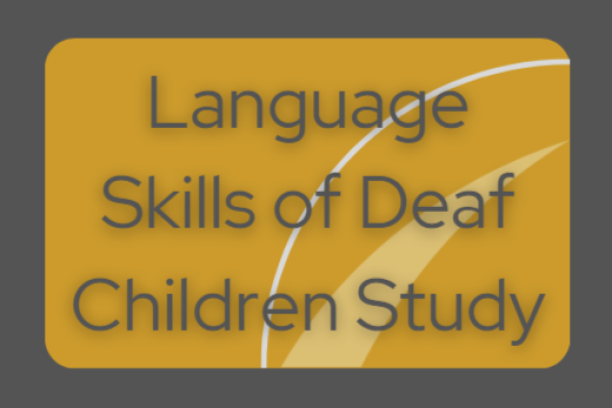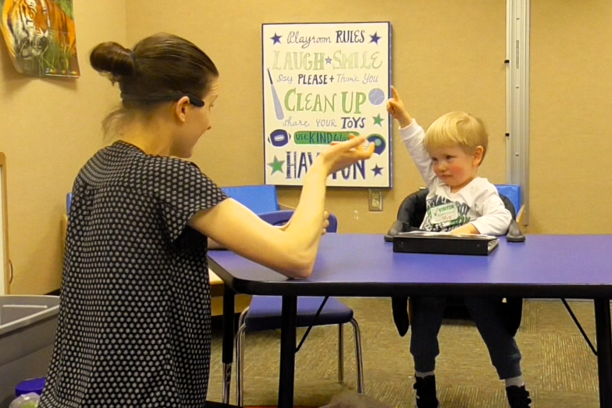-
McDaniel J., Benitez-Barrera C., Soares A., Vargas A., Camarata S. Bilingual versus monolingual vocabulary instruction for bilingual children with hearing loss The Journal of Deaf Studies and Deaf Education. 2019 Apr;24(24). 142-60.
Abstract
Effective vocabulary interventions for children with hearing loss, including children who are bilingual, are needed because of persistent vocabulary deficits in this population. Current instructional practices for children with hearing loss who are bilingual vary in the degree to which they incorporate the language the child uses at home. Unfortunately, there is little direct evidence as to whether bilingual or monolingual instructional practices yield greater benefits for these children. Three Spanish–English-speaking children participated in this single case adapted alternating treatments design study that evaluated the effectiveness and efficiency of bilingual and monolingual teaching procedures for an expressive vocabulary intervention. Contrary to predictions from a monolingual instruction perspective, no evidence of an inhibitory effect of bilingual instruction on English performance was identified. Participants exhibited gains in Spanish for words in the bilingual condition only. Findings suggest more efficient word learning in the bilingual condition as measured by conceptual vocabulary.





